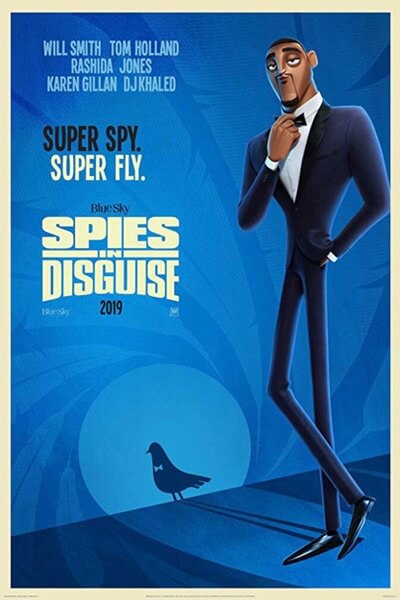
Rashida Jones
Biography

Rashida Jones was born in Los Angeles, California, the younger daughter of media mogul, producer, and musician Quincy Jones and actress Peggy Lipton. She has an older sister, Kidada Jones, and five half-siblings by her father's other relationships. Her father is African-American and her mother is Ashkenazi Jewish (a descendant of emigrants from Russia and Latvia). Rashida was raised in Reform Judaism. She grew up in Bel Air, Los Angeles, California. Jones has stated of her mixed race parentage, "It was the 1970s and still not that acceptable for them to be together." Jones made her professional acting debut in The Last Don, a 1997 mini-series based on the novel by Mario Puzo. Also in 1997, Rashida graduated from Harvard University.

No info available
Trivia
Younger sister of Kidada Jones.
Went to the Buckley School in Sherman Oaks, California. Was voted Most Likely to Succeed.
Daughter of composer Quincy Jones and actress Peggy Lipton.
Her name is Arabic (رØ'Ù?دة) for "Major, adult, grown-up, elder or wise".
On People Magazine's "50 Most Beautiful People" list. (USA) [2002]
Half-sister of Quincy Jones III, Jolie Jones, Martina Jones, Kenya Kinski-Jones, and Rachel Jones.
Formerly engaged to celebrity Mark Ronson on 25th February 2003.
Niece of Robert Lipton.
Formerly engaged to Tobey Maguire.
Graduated from Harvard University. [1997]
She has been romantically linked to Josh Hartnett, Seth Meyers, and John Krasinski.
Appeared as a vocalist in a tribute song to Tupac Shakur, who was engaged to her sister, Kidada Jones. Rashida and Kidada's brother Quincy Jones III produced the song, and their father, Quincy Jones, made an appearance reciting the lines of Shakur's poem "Starry Night" during the introduction. The title of the song is named after the poem.
Rashida's father is African-American, and also has smaller amounts of English, Scottish, and Welsh, ancestry (some of his African ancestors were from the Tikar people of Cameroon). Rashida's mother is Ashkenazi Jewish (of Russian Jewish and Latvian Jewish descent). Her paternal grandparents were from South Carolina and Mississippi, respectively. Her maternal grandfather was born in New York, and her maternal grandmother was born in Dublin, Ireland, of Eastern European Jewish origin.

Be friendly to everybody; protect yourself; people sometimes want a piece of you for no good reason; and always do things out of love not fear.
It's a two-way street. Hollywood, yes, I would say there is some feeding of some, as my character says in the movie Celeste & Jesse Forever (2012), 'pretty garbage-y stuff,' but we're also eating the garbage. So people have to show that there's a mature, complex moviegoing audience that wants to see - we have to see, we have to demand the better stuff.
I'm not against an action movie, I'm not against a big-budget movie, but the ones that I like are the ones where it's obvious where they took the time to develop characters, develop jokes, develop storylines. Like, don't waste my time and don't insult me, is how I feel.
[from a 2005 Glamour Magazine interview with Rashida and Kidada Jones] When I audition for white roles, I'm told I'm "too exotic." When I go up for black roles, I'm told I'm "too light." I've lost a lot of jobs, looking the way I do.
[from a 2005 Glamour Magazine interview with Rashida and Kidada Jones] Finally I was leaving for college, for Harvard. Daddy would have died if I turned Harvard down. Harvard was supposed to be the most enlightened place in America, but that's where I encountered something I'd never found in L.A.: segregation. The way the clubs and the social life were set up, I had to choose one thing to be: black or white. I chose black. I went to black frat parties and joined the Black Student Association, a political and social group. I protested the heinous book The Bell Curve [which claims that a key determinant of intelligence is inherited], holding a sign and chanting. But at other protests-on issues I didn't agree with- wondered: Am I doing this because I'm afraid the black students are going to hate me if I don't? As a black person at Harvard, the lighter you were, the blacker you had to act. I tried hard to be accepted by the girls who were the gatekeepers to Harvard's black community. One day I joined them as usual at their cafeteria table. I said, "Hey!"-real friendly. Silence. I remember chewing my food in that dead, ominous silence. Finally, one girl spoke. She accused me of hitting on one of their boyfriends over the weekend. It was untrue, but I think what was really eating her was that she thought I was trying to take away a smart, good-looking black man-and being light-skinned, I wasn't "allowed" to do that. I was hurt, angry. I called Kidada in New York crying. She said, "Tell her what you feel!" So I called the girl and...I really ripped her a new one. But after that, I felt insidious intimidation from that group. The next year there was a black guy I really liked, but I didn't have the courage to pursue him. Sometimes I think of him and how different my life might be if I hadn't been so chicken. The experience was shattering. Confused and identity-less, I spent sophomore year crying at night and sleeping all day. Mom said, "Do you want to come home?" I said, "No." Toughing it out when you don't fit in: That was the strength my sister gave me.























